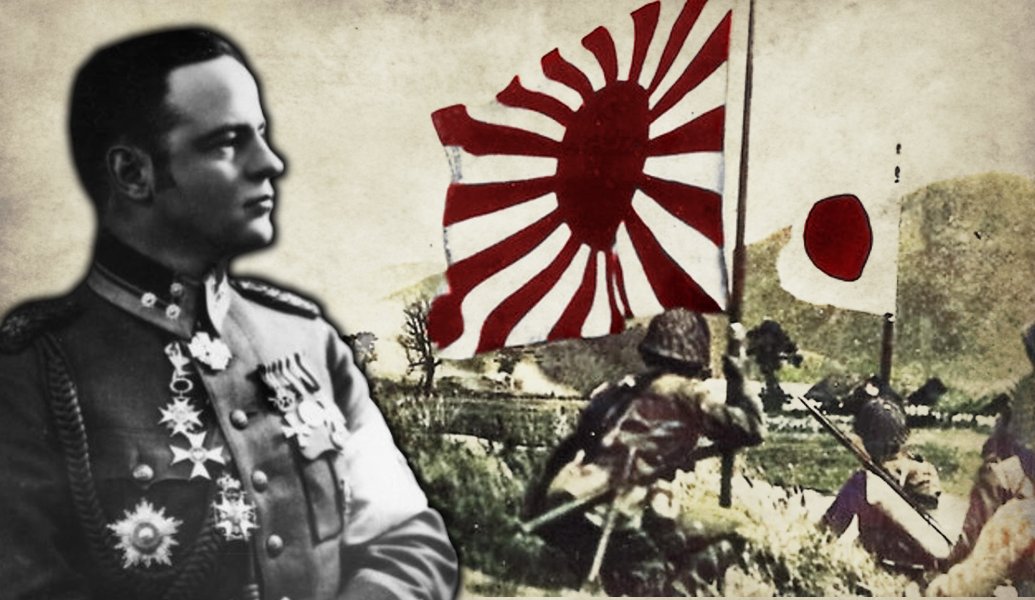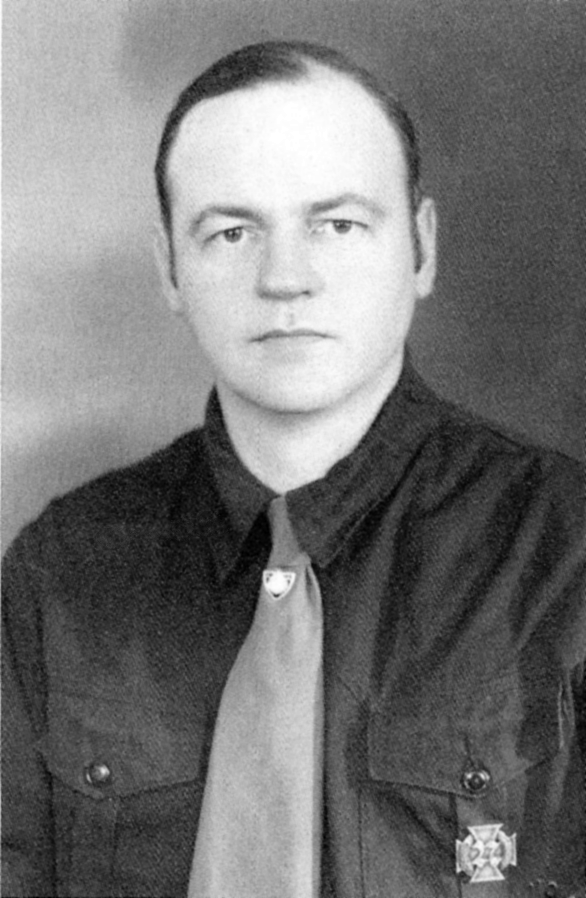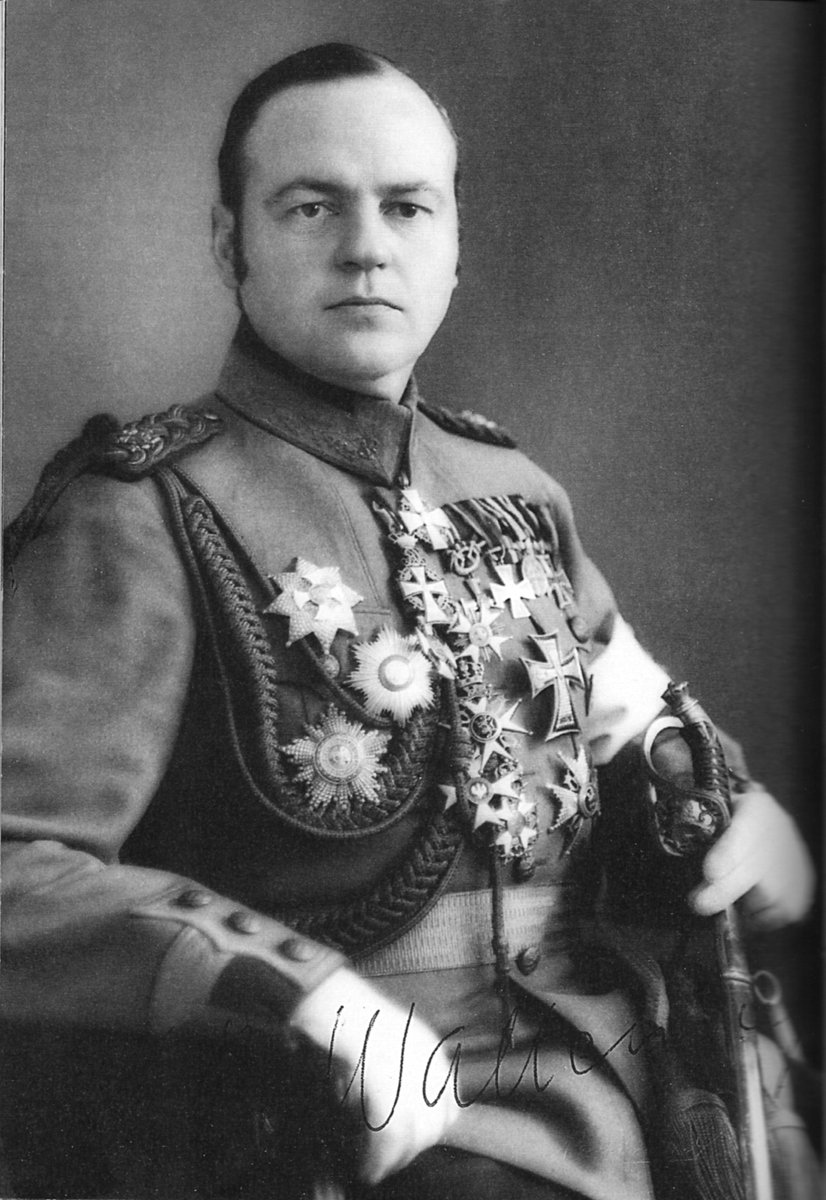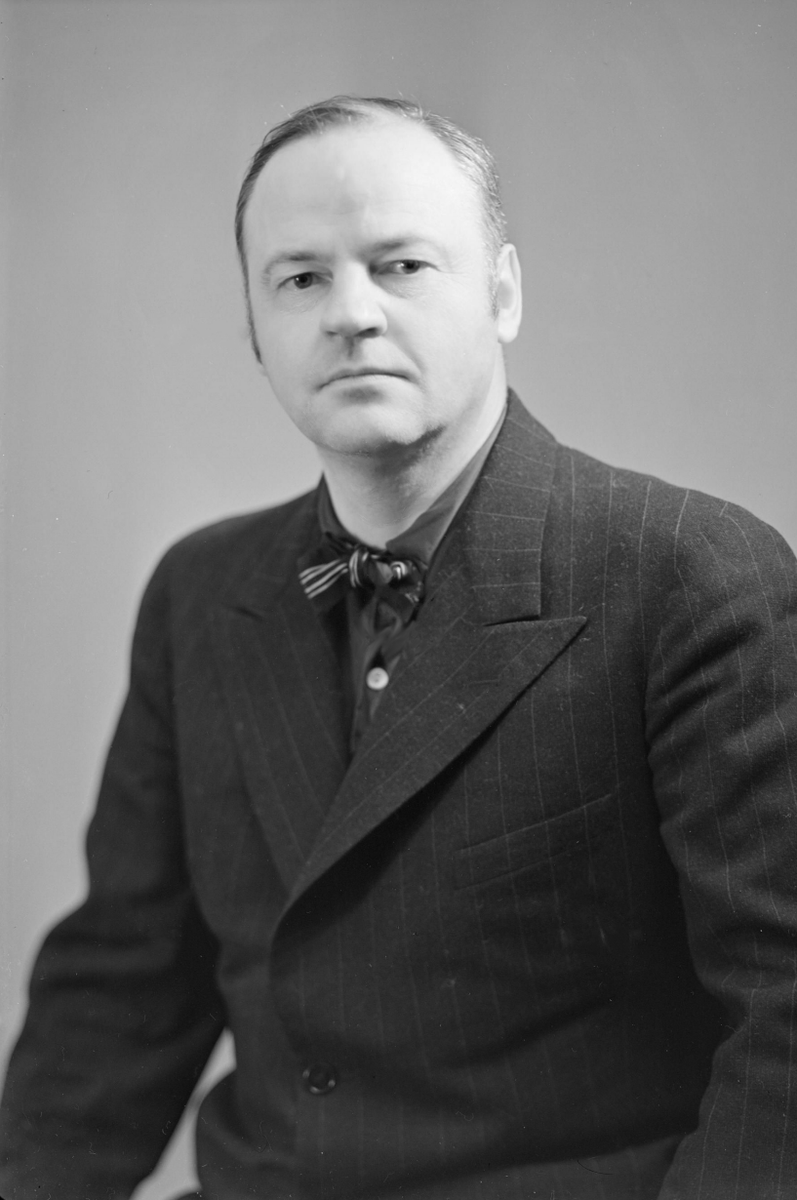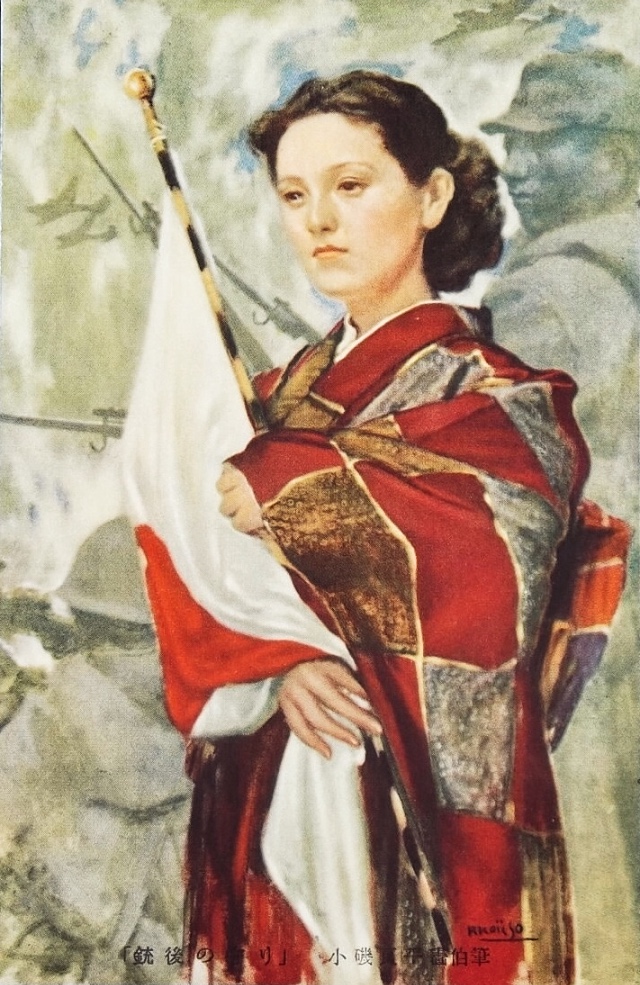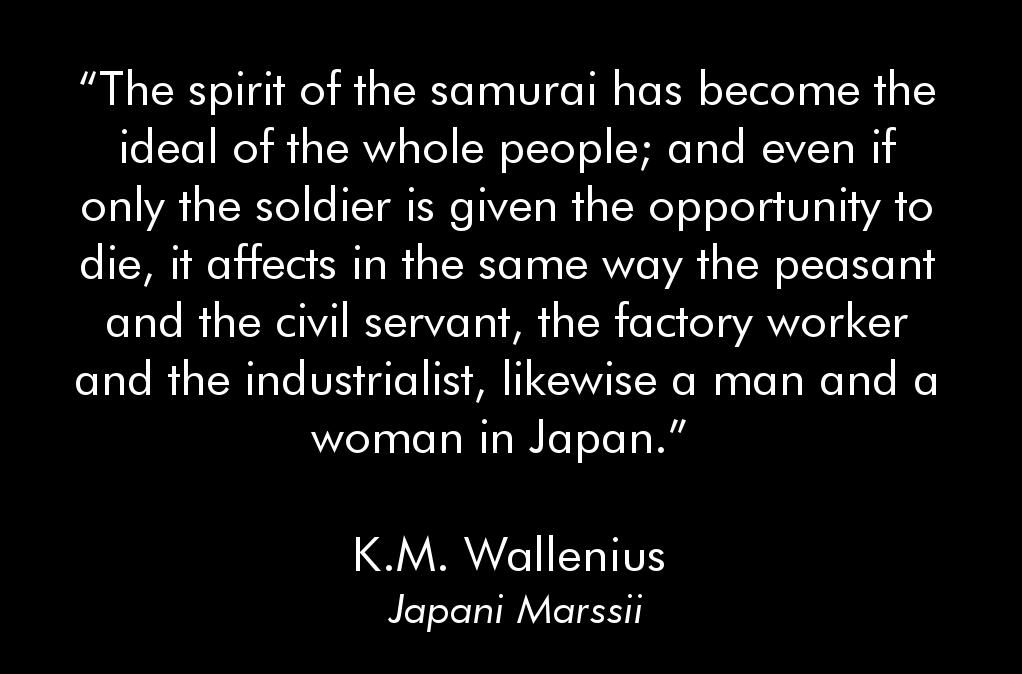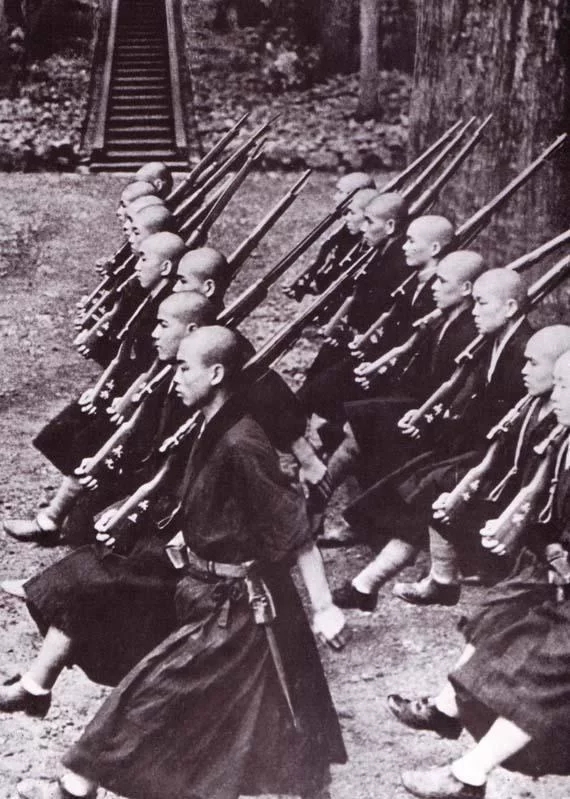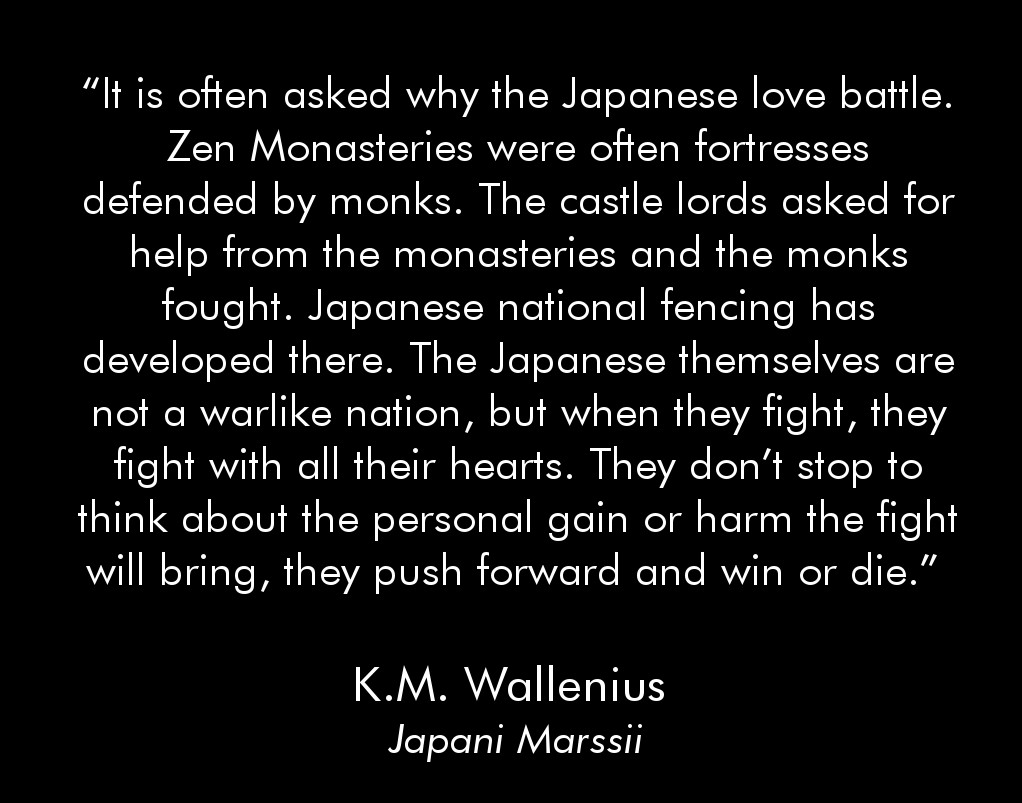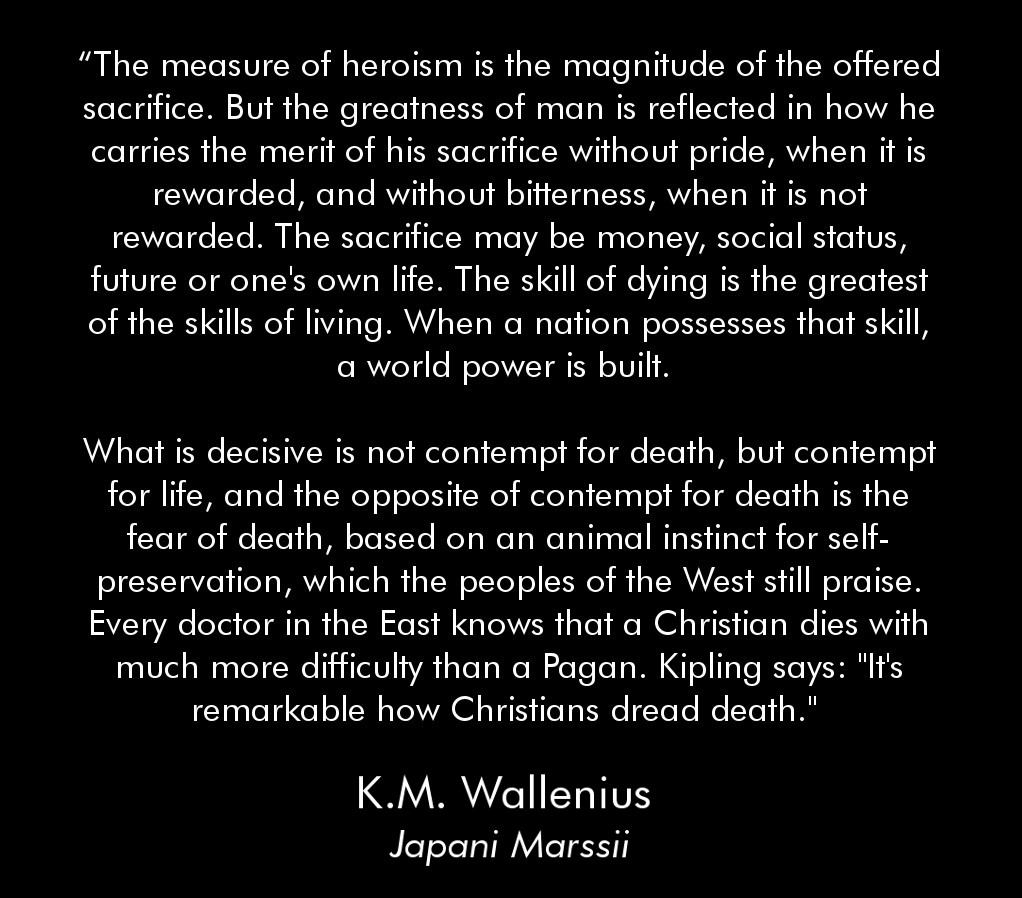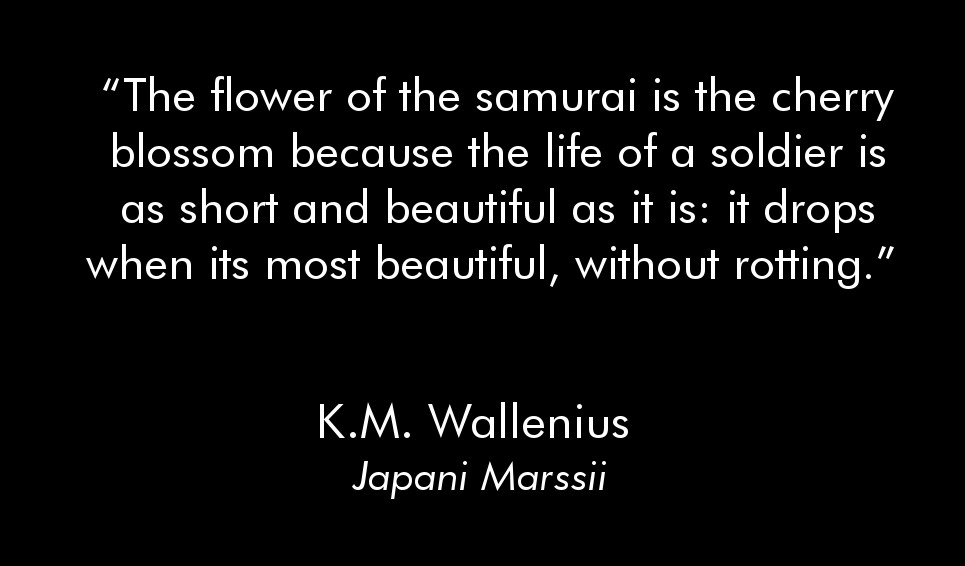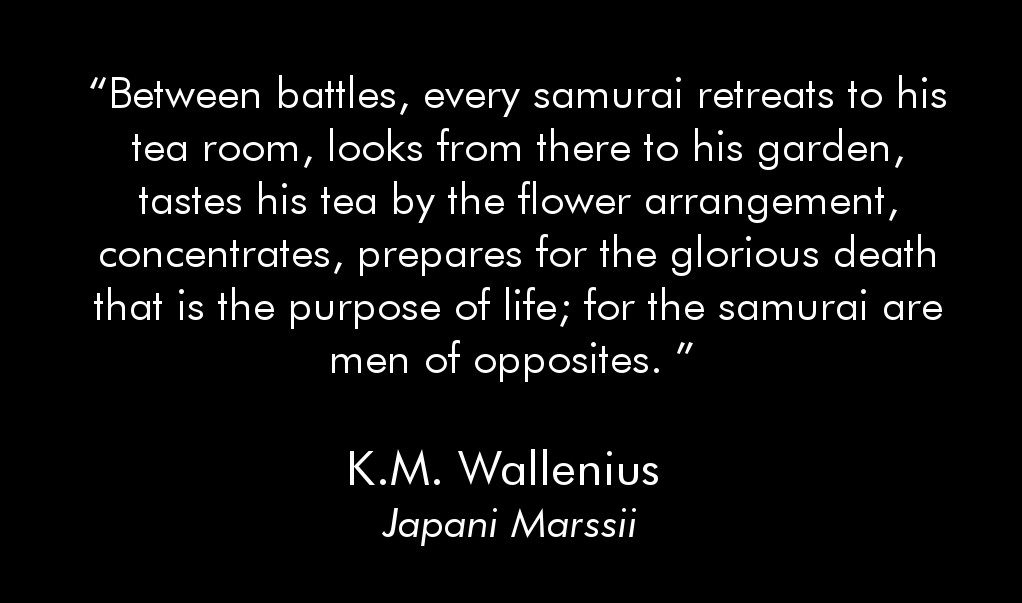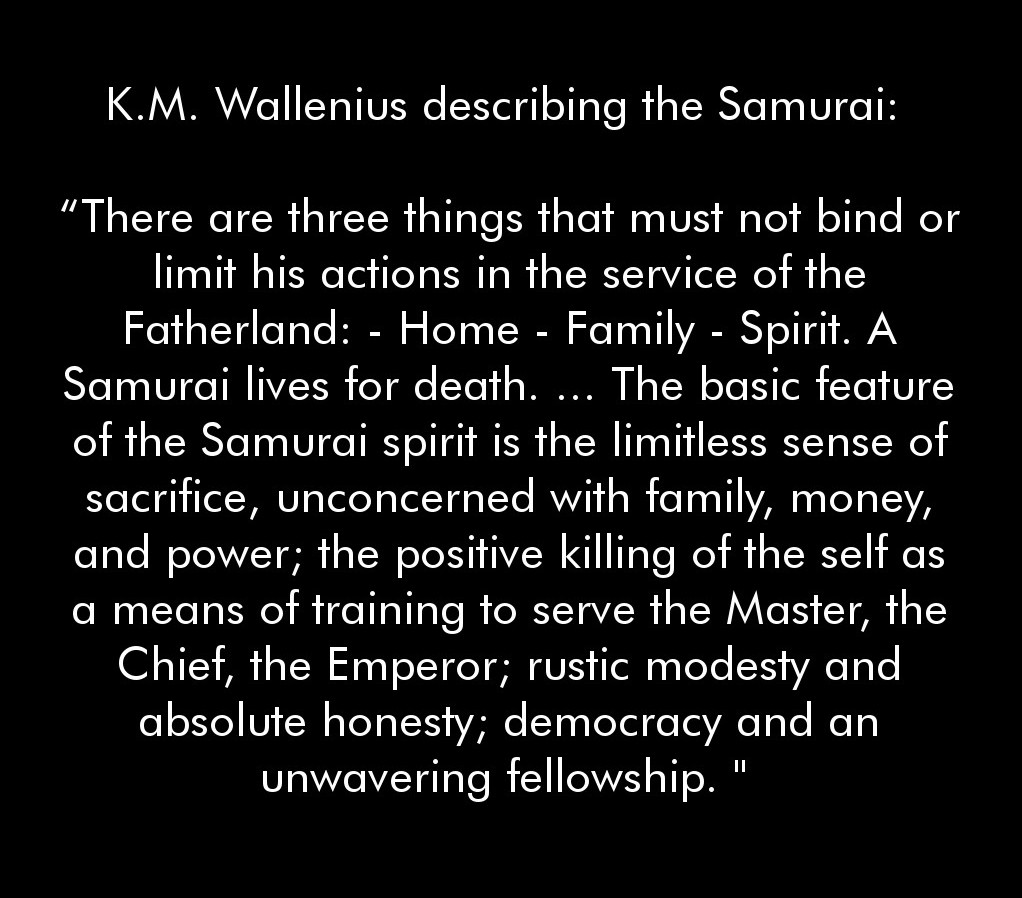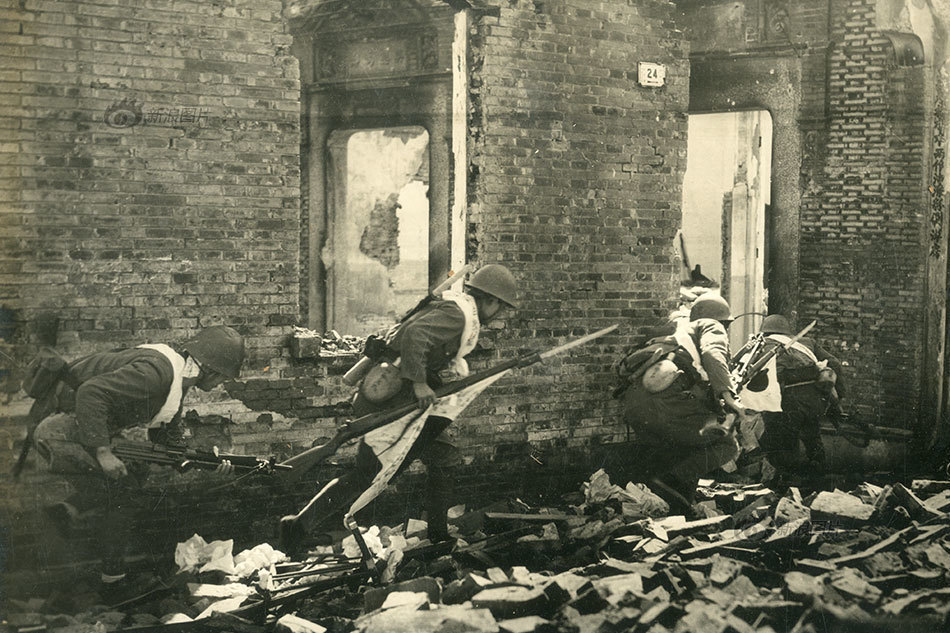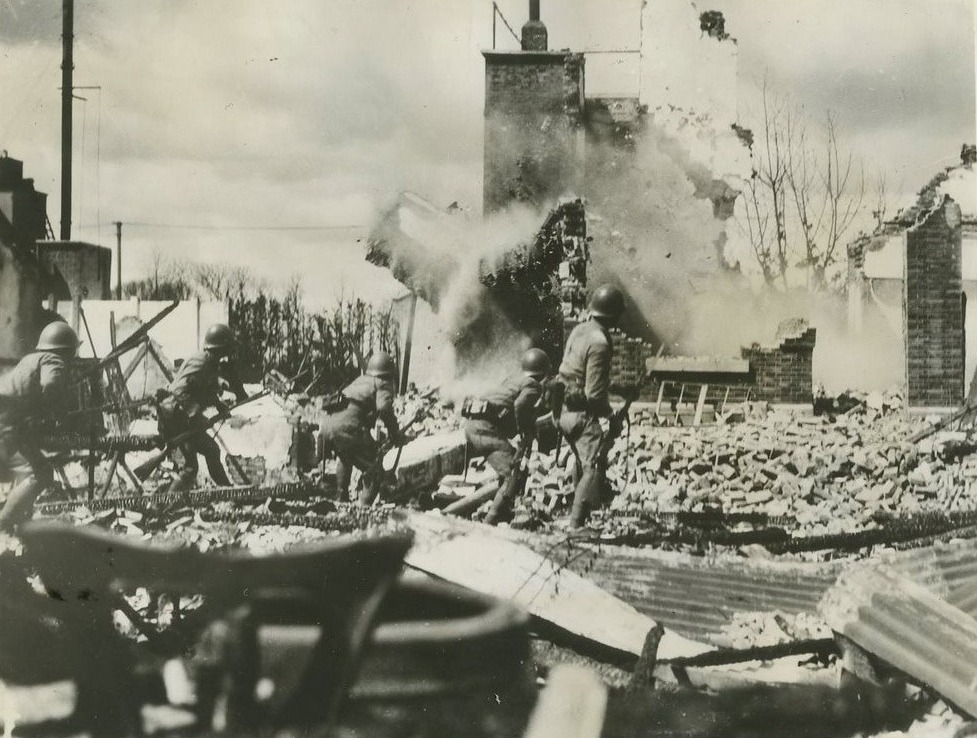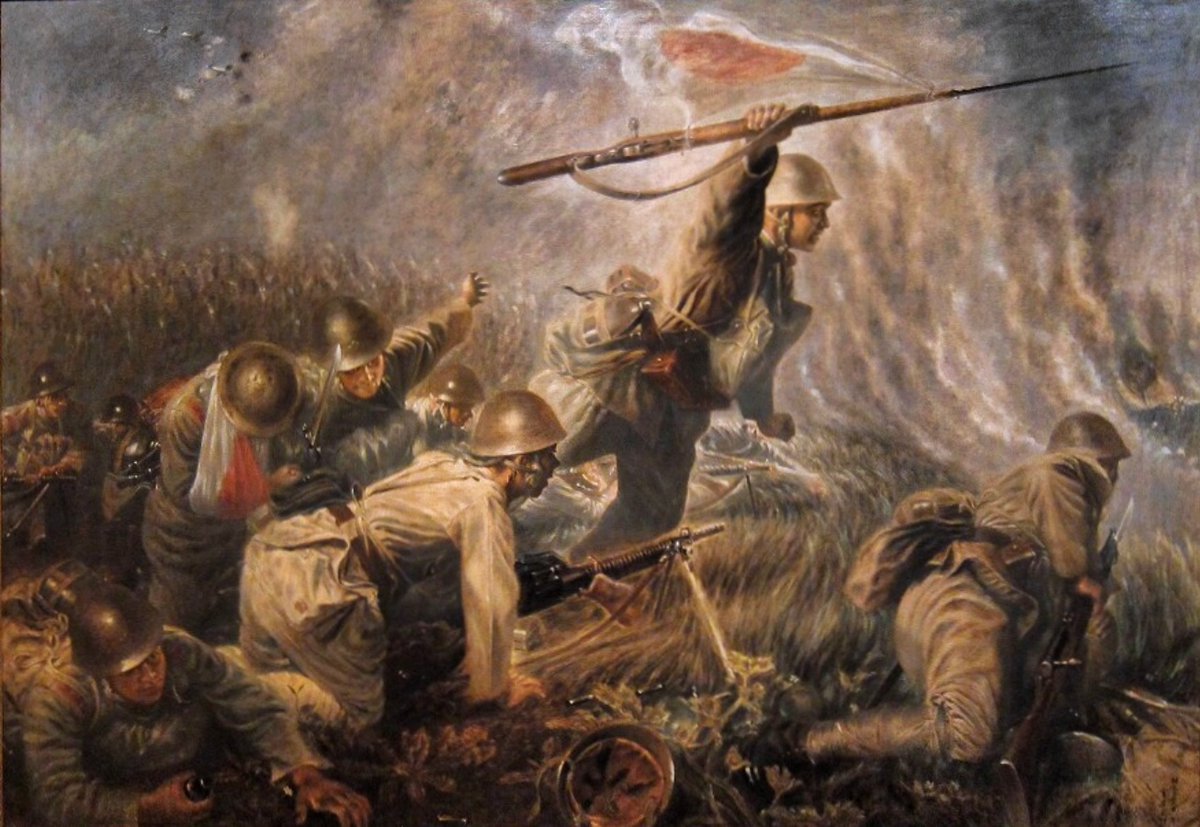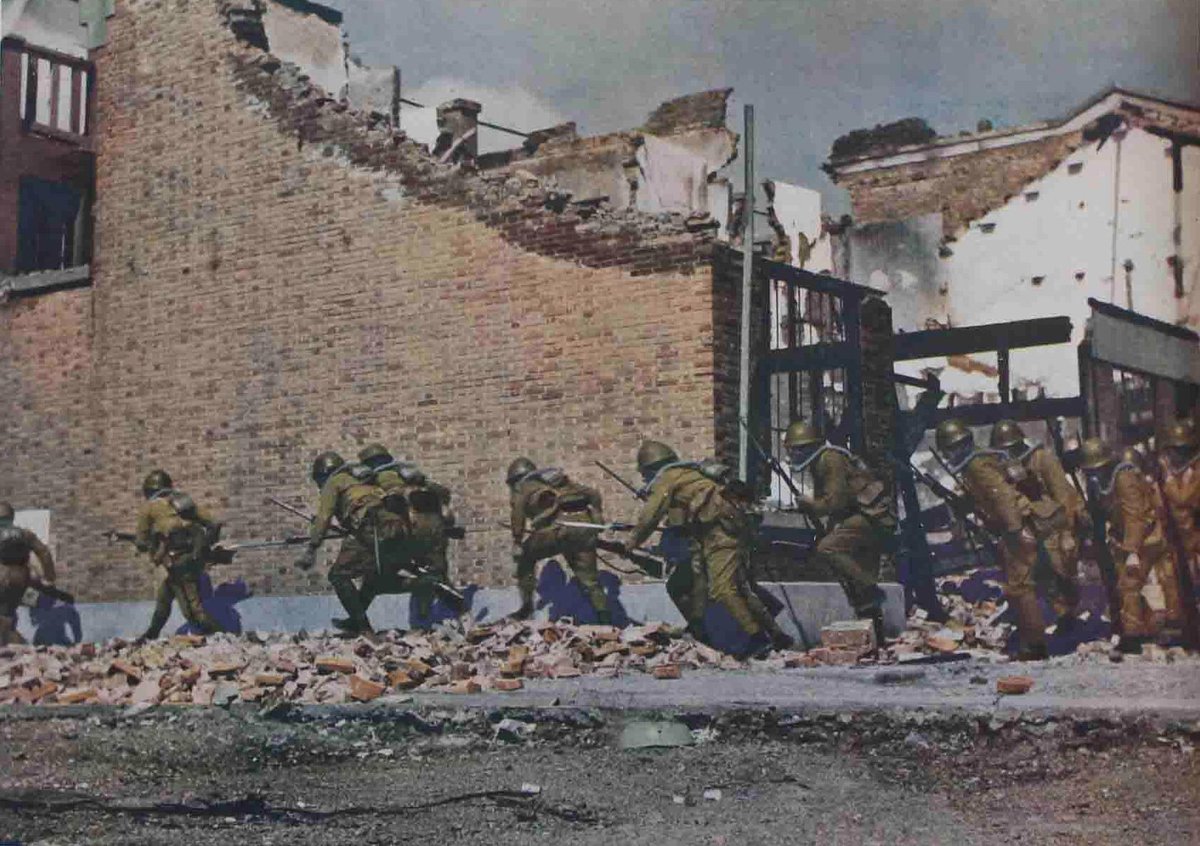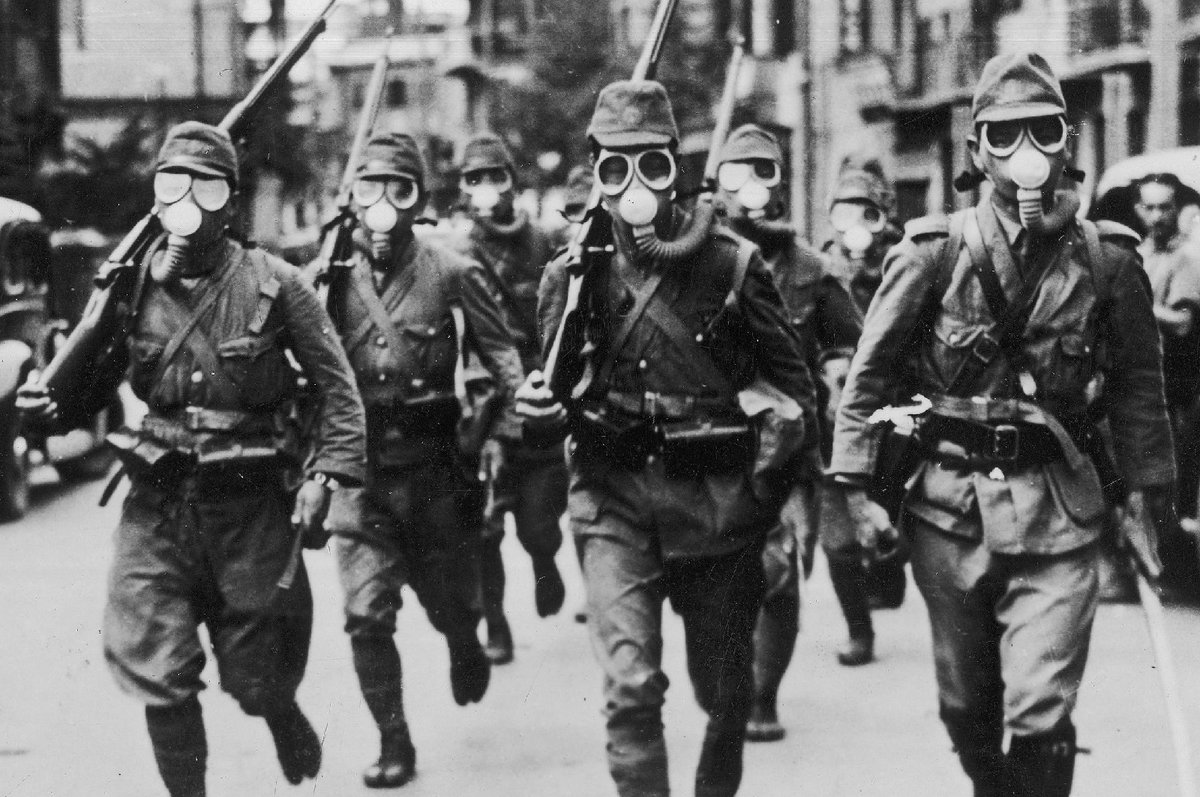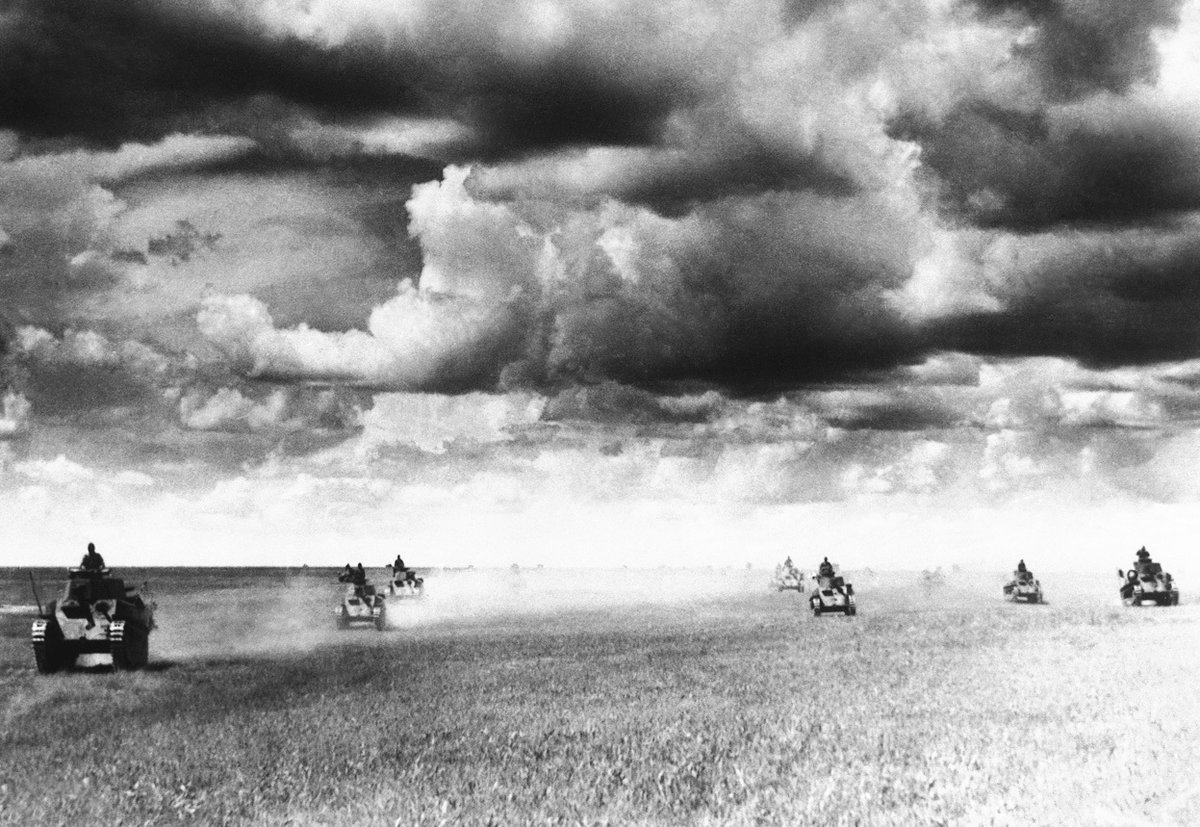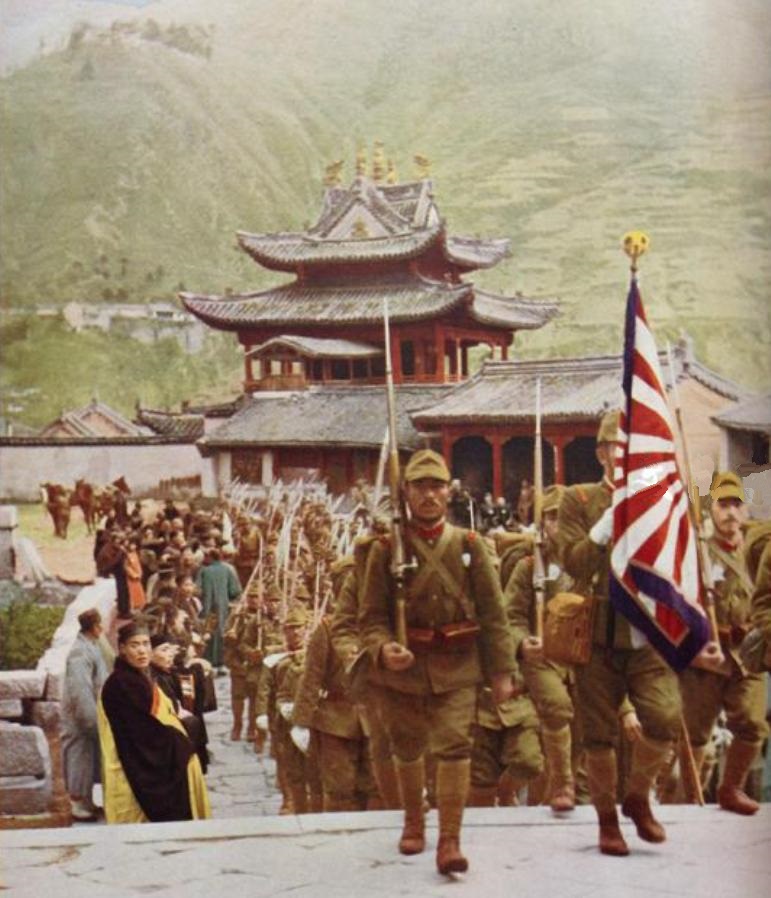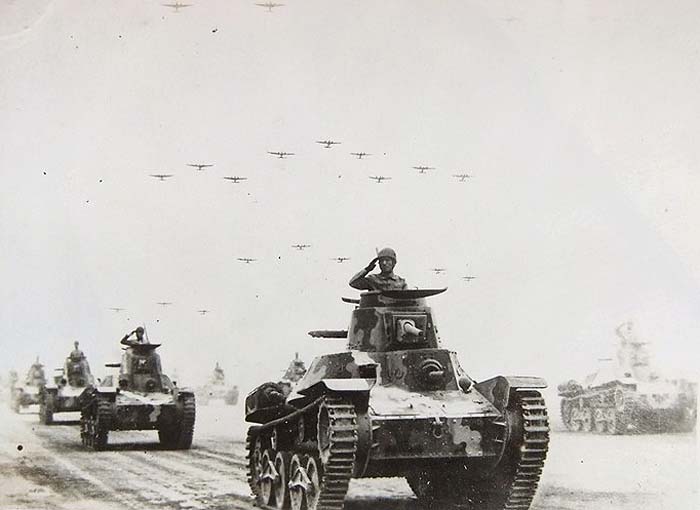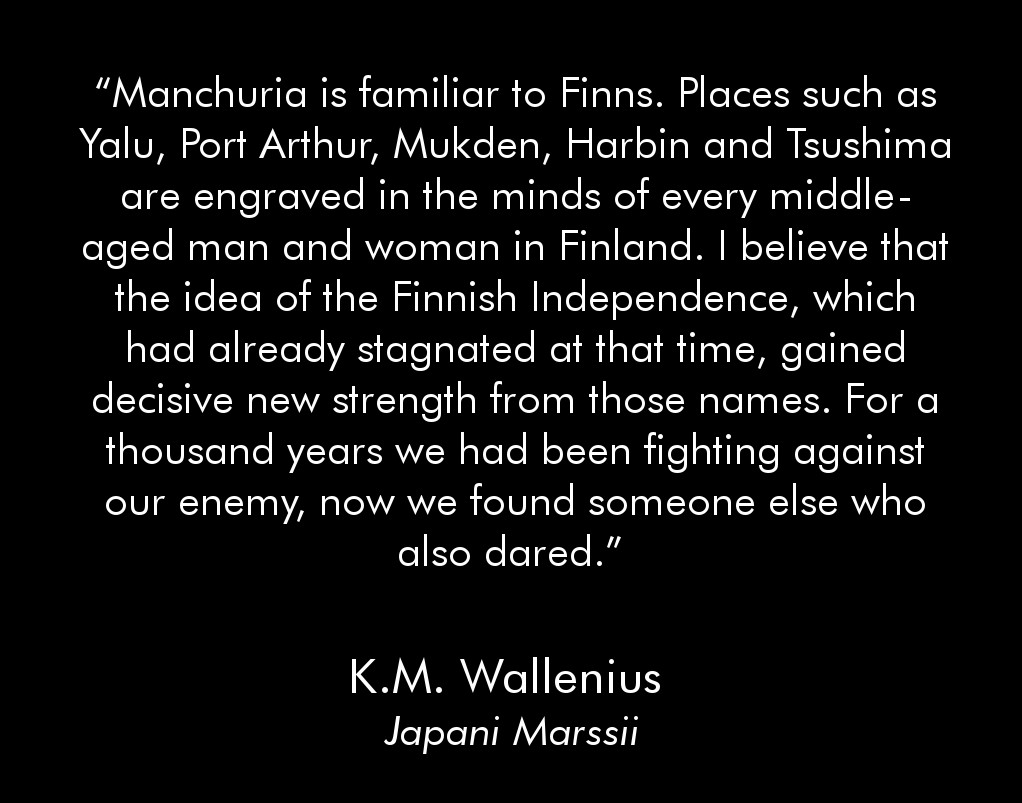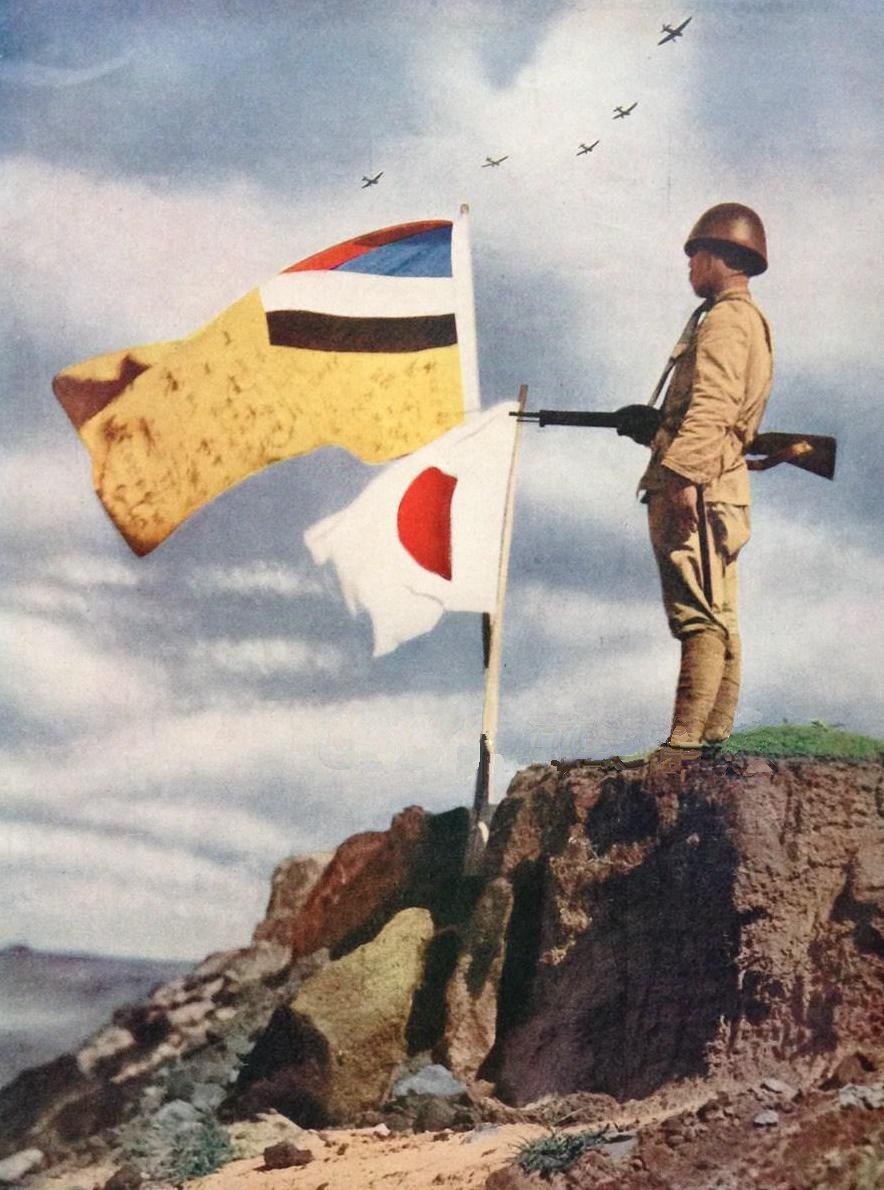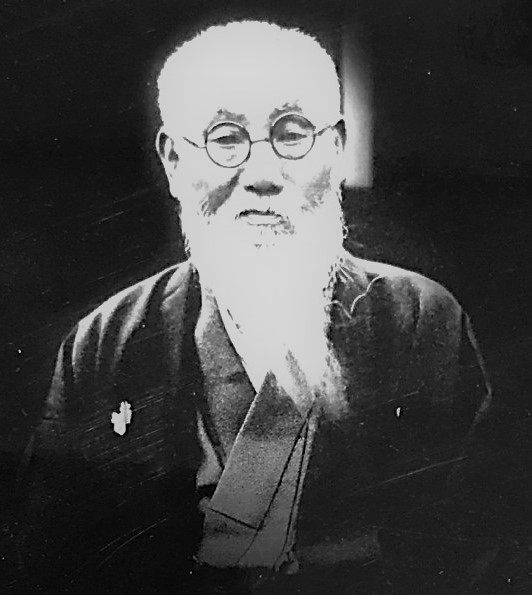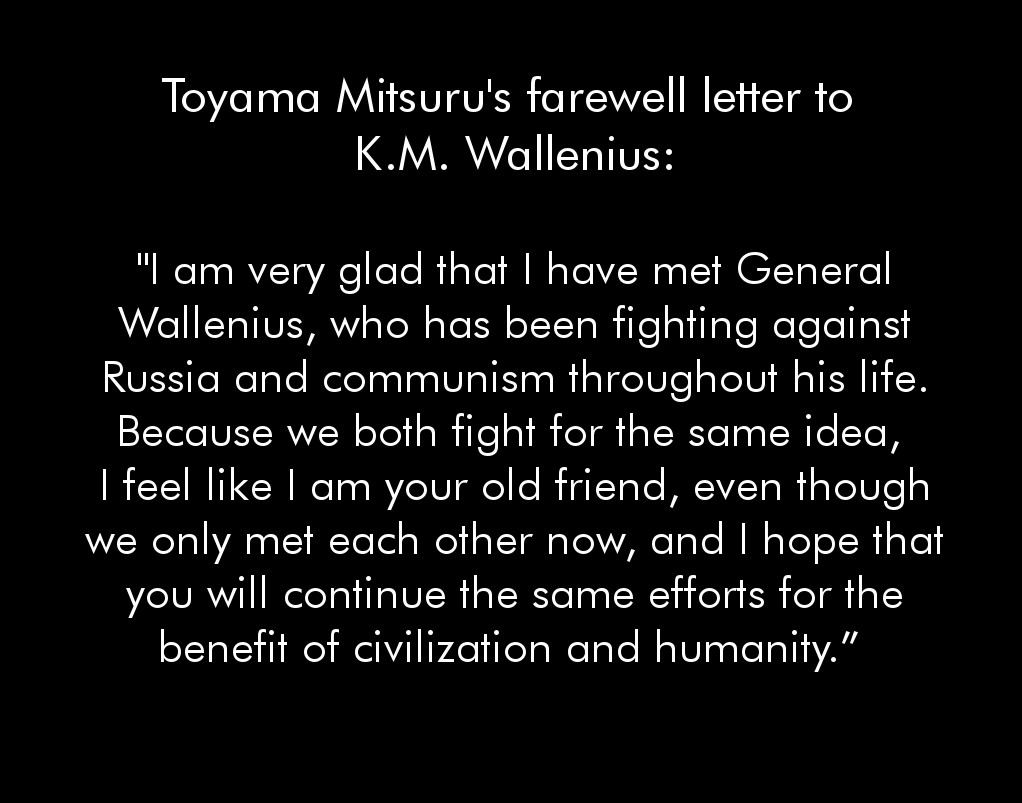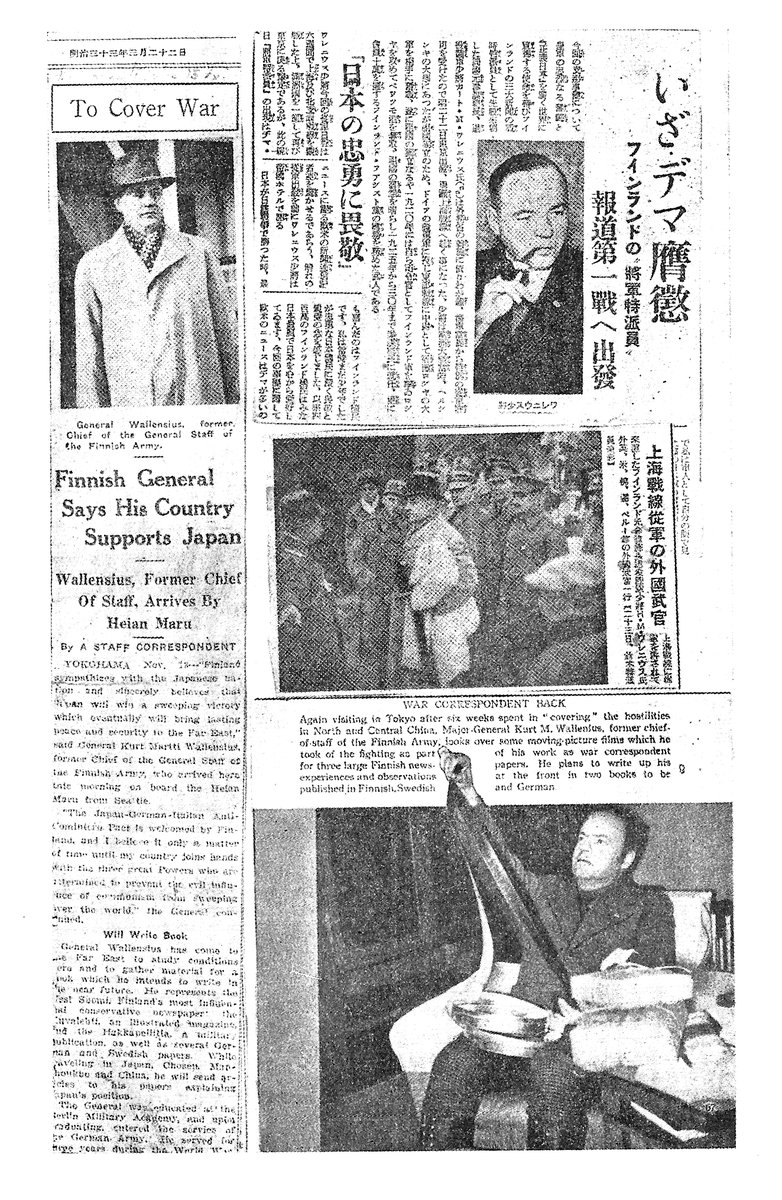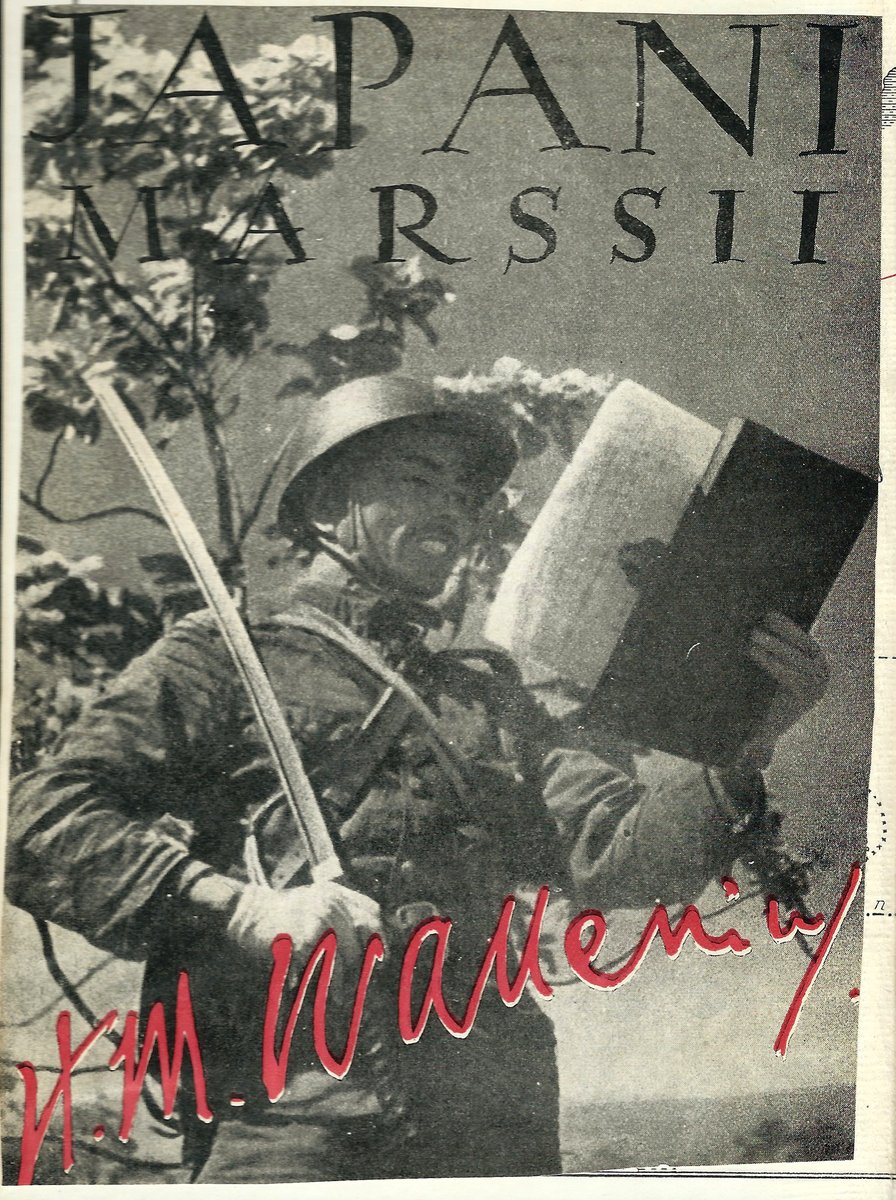After losing his post at the Finnish General Staff for his involvement in the Lapua Movement and their failed coup, Wallenius worked as a writer and as the head of a factory. He was an avid follower of news and believed another world conflict was on its way. 2/14
When the Sino-Japanese War began in 1937, Wallenius saw that the focus of world politics would be in Asia. He told people he was going to Japan to write about the Japanese character, monarchy, religion and culture. 3/14
He would spend a year in Asia. Depending on the story, Wallenius went there either as a correspondent or as a military advisor invited by the Japanese. In Japan, Wallenius was especially fascinated with the Japanese Kokutai, or National essence. 4/14
Wallenius believed that the strength of the Japanese people came from their “superhuman sense of duty and their morality of self-sacrifice and fellowship present in all social classes”. He saw similarities between the Bushido and his own fascist ideals. 5/14
Wallenius viewed the Samurai as the ideal warrior and saw the entire Japanese nation as embodying this ideal. He believed that the Japanese military readiness was “technically on the level of Europeans and spiritually, above them”. 6/14
Wallenius first visited the Japanese front lines in Shanghai where he observed urban warfare tactics and the Chinese retreat from the city as well as the beginning stages of the Nanking offensive. 7/14
Wallenius took note of the Chinese scorched earth tactics and partisan activity. He wrote that the conflict in China was started by Chinese Communists and that the Japanese Army was engaged in a justified anti-terrorist operation. 8/14
He then visited the Japanese Northern China Front. While the warfare in the South had been based on small movements and the use of pure strength, the war in the North was maneuver warfare, reminiscent of the Mongol invasions of the Past. 9/14
He was amazed at the scale of the Japanese operations and admired the Japanese logistical skill. Wallenius believed that Japan would eventually defeat China because they were the superior civilization and had the superior spirit. 10/14
Lastly, he visited Mongolia and the former battlefields of the Russo-Japanese War in Machuria. The War had had a great effect on Wallenius and other Finnish Nationalists, who back then supported the Japanese war effort against their oppressor. 11/14
https://twitter.com/armas_aallontie/status/1273964716122157058">https://twitter.com/armas_aal...
https://twitter.com/armas_aallontie/status/1273964716122157058">https://twitter.com/armas_aal...
During his trip, He met Toyama Mitsuru, the founder of the Black Dragon Society and the two discussed at great length about the danger communism posed to both of their countries. 12/14
He also gave interviews to newspapers which quoted him as a Finnish general even though the Finnish government had nothing to do with his trip. In the Finnish Embassy, his pro-Japan statements were seen threatening Finland’s neutrality. 13/14
Wallenius wasn’t unique with his pro-Japan views. Contemporary of Wallenius, Paavo Susitaival, also wrote favorably of Japanese Militarism and fraternized with them. 14/14 https://twitter.com/armas_aallontie/status/1200431446827130880">https://twitter.com/armas_aal...

 Read on Twitter
Read on Twitter